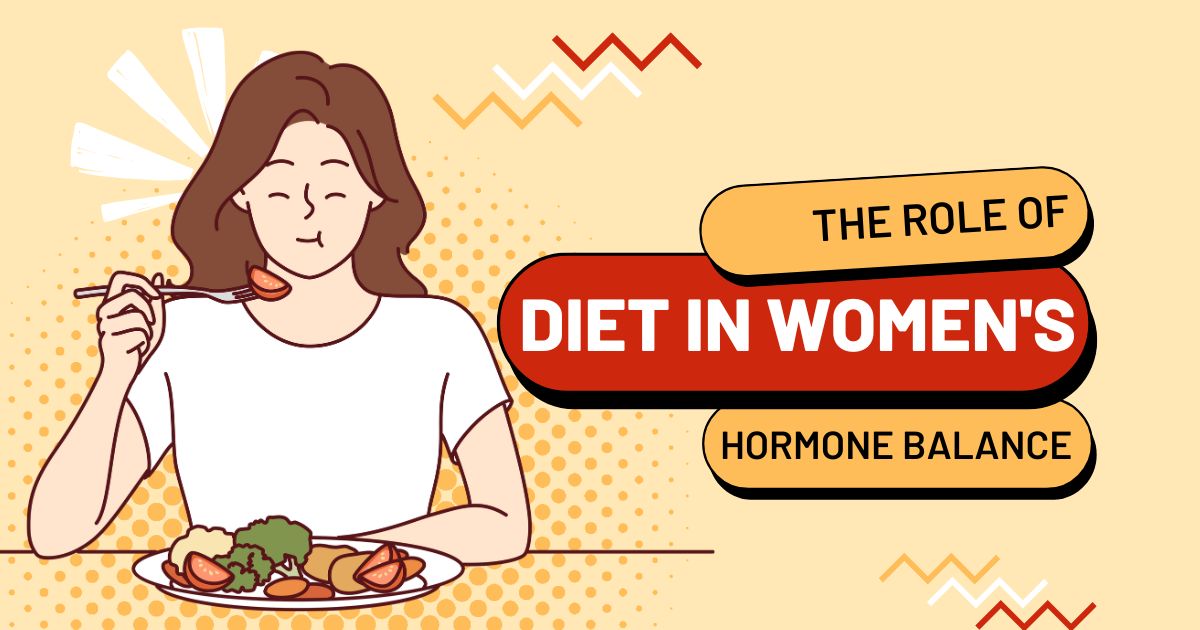Understanding Women’s Hormone Balance
Hormone balance is a cornerstone of women’s health, influencing everything from mood and energy levels to weight and reproductive function. This delicate balance ensures that essential processes in the body work harmoniously, supporting overall well-being and vitality. When hormones are in sync, women tend to feel their best, both physically and mentally. However, when this balance is off, it can lead to a cascade of health issues, underscoring the importance of maintaining hormonal equilibrium.
Key Hormones in Women’s Health
Three primary hormones play pivotal roles in women’s health: estrogen, progesterone, and testosterone. Each has unique functions but together, they create a symphony of biochemical signals that regulate numerous body processes.
Estrogen, often hailed as the quintessential female hormone, supports reproductive health, influences mood, and helps maintain skin and bone health. Progesterone, crucial for pregnancy and menstrual cycle regulation, also impacts sleep and mood. Testosterone, though typically associated with men, is vital for women too, affecting libido, muscle strength, and bone density.
The Impact of Diet on Hormone Health
What we eat has a profound impact on our hormone balance. Nutritious foods provide the building blocks for hormone production and regulation, while poor food choices can disrupt this delicate balance. Incorporating a variety of nutrient-rich foods can support the endocrine system, ensuring that hormone levels remain stable.
For instance, dietary fiber helps modulate estrogen levels, while phytoestrogens found in foods like flaxseeds can offer mild estrogenic effects, beneficial for those managing low estrogen levels. Conversely, excessive sugar and processed foods can spike insulin levels, leading to insulin resistance, a condition linked to hormonal imbalances including polycystic ovary syndrome (PCOS).
Foods Influencing Women’s Hormone Balance
Incorporating hormone-balancing foods into your diet can be a delicious and effective way to support your endocrine health. Foods rich in omega-3 fatty acids, like salmon and flaxseeds, can support hormonal balance. On the other hand, certain foods, particularly those high in unhealthy fats and sugars, can disrupt this balance. They can lead to inflammation and insulin resistance, further complicating hormonal health.
Lifestyle and Exercise for Hormonal Balance
A healthy lifestyle, including regular physical activity, can significantly influence hormonal health. Exercise, particularly strength training and cardiovascular workouts, can boost hormone function by improving insulin sensitivity and reducing stress levels. Chronic stress, known to disrupt hormone balance, can be mitigated through consistent physical activity, which lowers cortisol levels and enhances mood and metabolic health.
Moreover, stress management techniques such as yoga and mindfulness can further help in maintaining a healthy hormone balance. These practices reduce cortisol levels, thereby supporting overall hormonal health and contributing to better stress management and improved quality of life.
Practical Strategies for Women’s Hormone Balance through Diet
Achieving hormone balance is pivotal for women’s health, and diet plays a crucial role in this process. By making informed dietary choices, women can positively influence their hormonal health, supporting their overall well-being.
Hormone-Balancing Foods and Recipes
Incorporating specific foods into your diet can significantly support hormonal health. Here’s a list of hormone-friendly foods:
- Omega-3-rich foods: Salmon, chia seeds, and walnuts help reduce inflammation and support hormonal communication.
- Fiber-rich foods: Vegetables, fruits, and whole grains help regulate estrogen levels and support digestive health.
- Protein sources: Lean meats, legumes, and tofu provide the necessary building blocks for hormone production.
Delicious and simple recipes that incorporate these foods can make maintaining hormonal balance both enjoyable and sustainable. For example, a smoothie with flaxseeds, berries, and spinach offers a powerful blend of phytoestrogens, antioxidants, and fiber.
Avoiding Hormone-Disrupting Foods
Certain foods can negatively impact your hormonal health. Here’s what to limit or avoid:
- Processed foods: High in sugars and unhealthy fats, these can disrupt insulin and other hormone levels.
- Alcohol: Can interfere with liver function and hormonal regulation.
- High-glycemic foods: Can cause rapid spikes in blood sugar and insulin, disrupting hormonal balance.
Supplements and Natural Remedies
While food is fundamental for hormone health, supplements can also play a supportive role:
- Vitamin D: Essential for hormone function and overall health.
- Magnesium: Supports hundreds of biochemical reactions in the body, including hormone synthesis.
- Adaptogens: Herbs like ashwagandha can help balance cortisol levels and support adrenal health.
Always consult with a healthcare provider before starting any supplement regimen to ensure they are appropriate for your individual health needs.
Implementing a Hormone-Friendly Lifestyle
Diet is just one piece of the puzzle. A comprehensive approach includes:
- Regular exercise: Aids in balancing hormones like insulin and cortisol.
- Stress management: Practices like meditation and yoga can help maintain hormonal equilibrium.
- Adequate sleep: Essential for the regulation of many hormones.
FAQs on Women’s Hormone Balance
- What are the signs of hormone imbalance in women?
- Symptoms can include irregular periods, weight gain, fatigue, mood swings, and sleep disturbances.
- Can diet really affect my hormone levels?
- Absolutely. Dietary choices influence hormone production and function, impacting overall hormonal balance.
- What is the best diet for hormonal balance?
- A diet rich in whole, unprocessed foods, healthy fats, proteins, and fiber supports hormonal health.
- Are there any specific foods known to disrupt hormone balance?
- Foods high in refined sugars, soy, and alcohol can disrupt hormonal equilibrium.
- How can I start improving my hormone health today?
- Focus on incorporating nutrient-dense foods, staying hydrated, and avoiding processed foods and high sugar intake.
- Can lifestyle changes improve my hormonal health?
- Yes, integrating regular physical activity, stress reduction techniques, and sufficient sleep can significantly improve hormonal balance.
